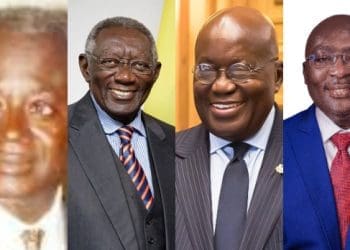Ghanaians seeking to travel to the United States (U.S.) will now face significantly tighter visas restriction following a sweeping policy revision by the U.S. government that took effect from Monday, July 8, 2025.
Under the new directive, most non-immigrant visas — including B1 (business), B2 (tourism), B1/B2 (combined), F (student), M (vocational student), J (exchange visitor), H (temporary worker), and L (intra-company transferee) — will be issued as single-entry visas valid for only three months.
This marks a sharp departure from the previous policy, under which Ghanaian nationals could receive five-year multiple-entry visas, especially for B1/B2 categories.
The announcement, which has sparked concern among frequent travelers, students, business executives, and tour operators, signifies a dramatic tightening of U.S. visa issuance for Ghana — a country previously considered for more liberal travel terms under long-standing diplomatic relations.
Impact: Reduced flexibility and increased costs
The revised visa regime means Ghanaian applicants will have to reapply — and pay the full visa application fee — every time they wish to travel to the U.S., regardless of whether their travel is for business, tourism, study, or employment-related activities. The new three-month single-entry validity is now among the shortest available to any country in West Africa.
Under the old regime, B1/B2 visas often allowed multiple entries over a five-year period, reducing administrative hurdles and financial burden for frequent travelers. With the changes, however, travelers must now demonstrate intent and eligibility afresh each time they wish to enter the U.S.
Affected Visa Categories
The policy affects a wide range of non-immigrant visa types, including:
B1 – Business visitors
B2 – Tourists/medical visits
B1/B2 – Combined business and tourism
F – Academic students
M – Vocational students
J – Exchange visitors (including scholars, interns, trainees)
H – Temporary skilled workers
L – Intra-company transferees
The U.S. Embassy in Accra is expected to implement the policy without exceptions unless otherwise stated.
No clear public explanation
As of press time, no detailed explanation has been provided by the U.S. Embassy or the State Department regarding the rationale behind the policy shift.
The change follows previous tensions over the issuance and acceptance of travel documents for deported persons — a long-standing issue that once triggered U.S. visa sanctions on some categories of Ghanaian government officials under Section 243(d) of the Immigration and Nationality Act.
Reactions from public and stakeholders
Many Ghanaians have expressed dismay at the abrupt rollback of long-term visa privileges, especially in a global environment where U.S.-Africa relations are being positioned as more inclusive and growth-oriented.
With this policy, Ghana joins a growing list of countries where U.S. visa validity has been shortened or restricted in recent years.
Travelers are now advised to plan with greater caution, accounting for longer visa processing times and higher travel costs over time.
Prospective applicants should monitor the U.S. Embassy in Ghana’s website and social media channels for further updates and guidance.













